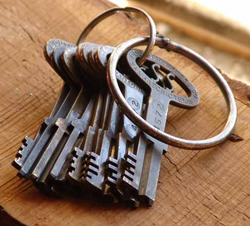
Characteristic Two: People Skills
Now, I know that many of you technical artists out there are introverts and don’t consider yourselves, “people people.” I get that. I’m an introvert as well.
But one thing I’ve observed is that the most successful technicians are also pretty good with people. I know that it doesn’t always come naturally, and we have to work at this (I do, anyway). But work at it we must, because it really makes a huge difference.
We’ve all seen the classic “grumpy tech” who constantly complains, never comes out of the booth to talk to the musicians (except to grudgingly change a setup item), and generally gives the band or pastoral staff a hard time about, well, everything.
I don’t care how good you are at mixing, programming lights or directing video, if you can’t get along with people, you will never become a great technical artist.
We see this even outside the church; quite often the most successful (from a career standpoint) FOH and monitor engineers are not necessarily the most talented technically. However, they are committed to the artist 100% and they will do whatever it takes to make the artist comfortable.
Being pleasant to work with, and starting with “Yes” will get you much further than being the guy who always says “No” first. Years ago, during one of the webinars I did with Jason Cole and Dave Stagl, Dave made this statement (and I’m quoting from memory here), “You know, so many musicians are used to being treated like crap by techs, so they tend to come in on the defensive. Treat them like a human being, get them a bottle of water or help them set up and see how much better they respond.”
If you are a normally quiet and reserved person, I don’t expect you to suddenly become an outgoing, smiling, back-slapping, life-of-the-party type. However, it won’t kill you to walk down to the stage when the musicians arrive, greet them with a smile, handshake and a friendly hello.
And when someone asks you to do something, answering with a “Yeah, I think we can do that,” will get you a lot further than, “Well we could have done that if you had told me about it Wednesday.” Even if you can’t do it, figure out a way to answer with a no, but in a positive light. Perhaps, “Aw man, I wish we could do that, but we’re not really set up for it. I can work on it next week, and we could do it next weekend, though!” See the difference?
I would take 10 technical artists with above average people skills and average tech chops over 10 people with the opposite mix. Which one are you? (Of course, I would rather have 10 people who are above average in both people and technical skills…)
A great technical artist can relate to people, making them feel valuable and good about the service. When combined with Situational Awareness, we’re really starting to get somewhere.
